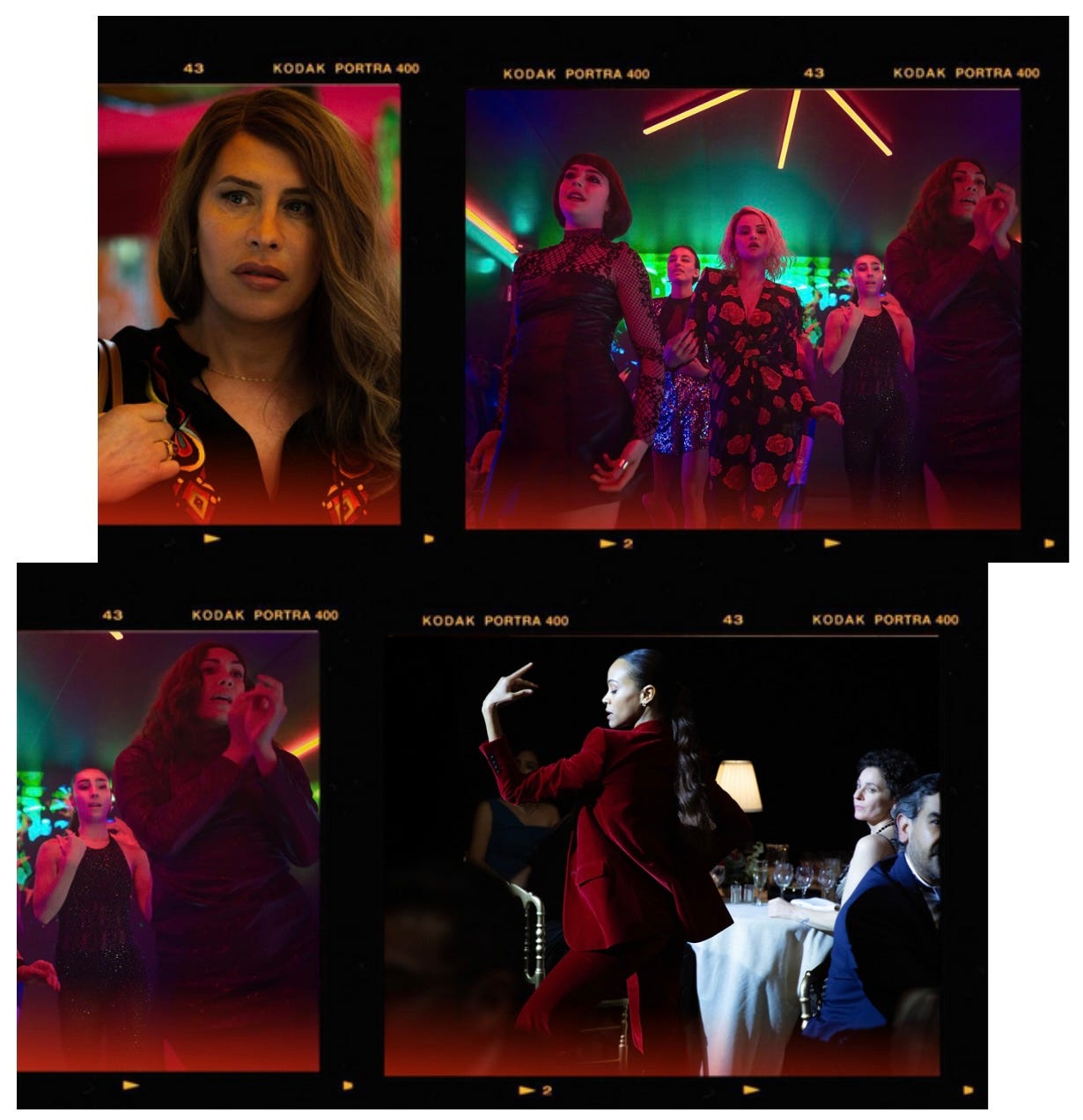'Emilia Pérez': Music, Madness & 'Phantasmagoria'
Michael Ruscio, ACE, explores the emotion behind the film's wild spectacle with editor Juliette Welfling and composers/songwriters Clément Ducol and Camille

Welcome to the latest episode of Art & Crafts, The Ankler’s podcast series dedicated to bringing audiences behind the scenes to examine the careers and contributions of the talented artisans who create and craft the movies and TV series we love. Subscribe on Apple Podcasts.
Jacques Audiard’s Emilia Pérez crosses borders, busts genre conventions and generally defies description. It’s a Spanish-language musical crime drama that won the Cannes Jury Prize and nabbed best actress awards for all four of its stars — Karla Sofía Gascón, Selena Gomez, Adriana Paz and Zoë Saldaña — marking the fest’s first time honoring a trans actress and its first time conferring so many honors in a single category. Centered on a drug kingpin (Gascón) who transitions to live as a woman, the film slips fluidly between realism and “phantasmagoria,” as composer/songwriter Camille puts it, taking its characters and viewers on a wild emotional, visual and musical ride.
Camille and her fellow composer/songwriter, Clément Ducol, joined the film’s editor, Juliette Welfling, to break down this fantastic journey at The Ankler’s Art & Crafts Live on Nov. 12. Their conversation, recorded before a packed Hollywood audience at the American Society of Cinematographers Clubhouse, was moderated by editor Michael Ruscio, ACE, whose credits include 3 Body Problem — for which he was Emmy-nominated this year — as well as Six Feet Under, True Blood, and The Leftovers. (Previous episodes from the event featured teams from Wicked and The Wild Robot.)

Camille and Ducol described mapping out Emilia Pérez’s songs with Audiard before he even had a script. “In the morning we would sit around the table reading the treatment and pointing out the scenes that could be used for a song. And in the afternoon we’d go to the studio, writing the music,” Ducol recalled. “Jacques and Thomas Bidegain, his collaborator, would come to listen. And sometimes there was a sense of jubilation because the songs are a catalyst for emotions and for narrative.”
“El Mal,” for example — a show-stopping turn for Saldaña — sees her character, Rita, dancing on tables at a charity dinner and railing against the venality of the guests while Emilia (Gascón) speaks from the event’s podium. Welfling explained how cutting between shots with Emilia speaking onscreen and shots where she’s heard only in voiceover help to delineate reality from Rita’s rage fantasy. Saldaña “was like a lion,” Camille added. “She’s a rock star.”
The first song performed by Gomez as Jessi, “Bienveneda,” is a rebellious punk rock thrasher. But when Jessi falls in love, that vibe gives way to the more playful, emotive and romantic pop sound of “Mi Camino,” which the duo wrote specifically for Gomez. “Jacques met her and said, ‘Okay, help me find a song that tells the story of her as a woman, and not only for the character,’” Ducol recalled.
While Camille and Ducol were working with Audiard for the first time, Welfling has edited his films for 30 years, and the two have established a rhythm: He never watches dailies, she said, even when he’s concerned about a problematic scene — in which case she makes a quick cut he can review on set. “And when he arrives at the end of shoot, he doesn’t want to see a movie that’s longer than what’s planned, he says, ‘because I’m gonna be too bored,’” she said. “So that’s how we work.”
But even for Audiard’s longtime collaborator, Emilia Pérez was an eye-opener. “I learned that he was even more crazy than I thought,” Welfling said. “And that I could follow and that it would be so great.
“Please, Jacques, stay crazy!”
Transcript here.

